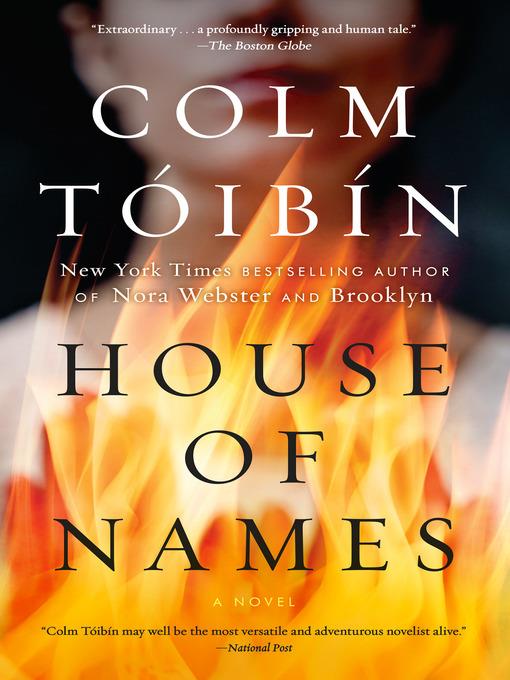
House of Names
A Novel
کتاب های مرتبط
- اطلاعات
- نقد و بررسی
- دیدگاه کاربران
نقد و بررسی

Starred review from March 13, 2017
Tóibín’s 11th novel retells the ancient Greek tale of Clytemnestra, who kills her husband Agamemnon to avenge the death of their daughter Iphigenia, and her son Orestes, who kills her in turn to avenge his father’s death. The narrators of the novel are Clytemnestra, Orestes, Orestes’s sister Electra, and Clytemnestra’s ghost. Clytemnestra begins by recalling that, for one fleeting moment at Agamemnon’s army encampment when eight-year-old Orestes was on his father’s shoulder, and 16-year-old Iphigenia in her father’s embrace, they seemed the ideal family. Then Agamemnon sacrificed Iphigenia (so he could sail off to war). Clytemnestra plots revenge. Back home at the palace, she seeks help from wily Aegisthus, who, though a prisoner, wields extensive power. When Agamemnon returns, Clytemnestra greets him with a hot bath and a knife in the throat. Later she discovers Aegisthus has kidnapped Orestes to strengthen his hold over her. Orestes takes refuge on a farm, while Electra remains at the palace haunted, powerless, craving payback. After brother and sister reunite, Orestes kills their mother. The novel ends with the appearance of Clytemnestra’s ghost and the birth of a baby. Tóibín refreshes a classic in part by imagining Orestes’s backstory with his friend Leander in a key role and in part by depicting in stark prose vibrant settings, such as palace hallways where shadowy figures conspire. The result is a dramatic, intimate chronicle of a family implosion set in unsettling times as gods withdraw from human affairs. Far from the Brooklyn or Ireland of his recent bestsellers, Tóibín explores universal themes of failure, loss, loneliness, and repression.

September 4, 2017
Tóibín executes a masterful retelling of Aeschylus’s trilogy, the Oresteia, through the eyes of Clytemnestra, Orestes, and Electra. When Agamemnon sacrifices his and Clytemnestra’s daughter to the gods, he sets in motion a series of betrayals that not only end his life but also ruin his family for years to come. Capturing the conflict and betrayal proliferating within the family, the story provides a sympathetic yet suspect view of Clytemnestra as she navigates power in a society dominated by men. Stage and screen actor Stevenson’s regal delivery in her natural English accent is a perfect match for the courtly Clytemnestra as she assumes power, enacts revenge, and then quivers with surprise when her own accomplice, the mysterious Aegisthus, betrays her. Actor Anson narrates Orestes’s portion of the tale, curious but fearful early on, as the character is kidnapped and hunted down, and later evincing a solemn maturity to convey the character’s anger and loss. Actor Nixon captures the maturing Electra’s transformation from an emotional and lively girl to a calm and calculating young woman. Together the three talented actors render Tóibín’s retelling of Greek tragedy back into the oral tradition from which it originated. A Scribner hardcover.

























دیدگاه کاربران